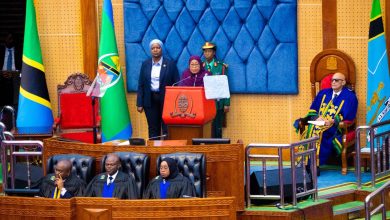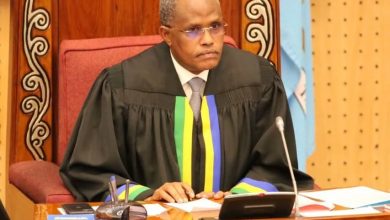CCM’s manifesto shifts: What it means for country’s future

DAR ES SALAAM: CCM has stepped into the campaign season for October General Election with a new manifesto that is sharper, bolder and far more data-driven than its predecessor.
The 2025–2030 Election Manifesto does more than promise continuity—it represents a deliberate recalibration of national priorities. It sets measurable targets, outlines strategic interventions and reflects a political party that is keenly aware that voter confidence today rests on delivery, not rhetoric.
One of the most striking differences between the 2020–2025 and 2025–2030 manifestos is the shift from broad aspirations to quantified goals.
The earlier document spoke of “boosting agriculture,” “improving industry,” and “expanding services,” but largely in aspirational language.
The new manifesto, however, provides hard numbers: Agriculture is expected to grow from 4.6 to 10 per cent by 2030; irrigation will expand to 5 million acres; and more than 10,000 tractors will be distributed nationwide.
This level of specificity suggests two important shifts. First, CCM is responding to growing public demand for accountability and transparency.
ALSO READ: UDP promises regional industrialisation, anti-corruption drive
Citizens want to see progress they can measure, not just hear promises. Second, the party recognises that political legitimacy now depends not only on its liberation credentials but also on its ability to meet tangible, trackable development outcomes.
Agriculture remains the centrepiece of Tanzania’s economy and politics. The 2020 manifesto pledged to “increase productivity,” but recurring challenges—climate shocks, limited mechanisation and high dependence on imports—exposed gaps.
The 2025–2030 document responds with more practical and precise interventions: Large-scale irrigation, mechanisation and improved seed distribution.
For rural voters, this translates into direct support for household livelihoods. Instead of vague assurances, they are being promised tractors, seeds and water—concrete tools that can lift productivity and income. In political terms, this reaffirms CCM’s traditional rural support base while addressing long-standing frustrations.
Unemployment, particularly among the youth, remains one of the most sensitive issues in Tanzania’s political landscape. The 2020–2025 manifesto promised 8 million jobs. The new one raises the target to 8.5 million. More significantly, it situates job creation within strategic sectors such as mining, industrialisation and digital innovation.
This signals a shift from simply counting job numbers to focusing on sustainability and quality.
For restless urban youth, who make up a growing share of the electorate, the promise of decent, future-oriented jobs may be more persuasive than sheer statistics.
The new manifesto’s infrastructure blueprint reveals a keen awareness of Tanzania’s rapid urbanisation. Plans for metro systems in Dar es Salaam and Dodoma, alongside expanded flyovers and highways, reflect a direct response to worsening congestion.
The expansion of the Standard Gauge Railway (SGR) and proposals for cross-border highways position Tanzania as a logistics hub for the region.
For urban voters who face daily frustrations with traffic and mobility, such commitments speak directly to lived experiences. For businesses and regional investors, they signal improved efficiency and competitiveness.
The manifesto pledges to nearly double electricity generation to 8,000 MW by 2030. This is more than an energy target—it is a signal to both investors and industries that Tanzania is laying the foundation for large-scale industrialisation and digital transformation.
In political terms, it reassures voters that CCM is preparing for tomorrow’s economy while tackling today’s shortages. In development terms, it creates the platform for sustained industrial growth, job creation and technological expansion.
ALSO READ: CCM promises regional growth
Another area of shift is in social services. While the 2020–2025 manifesto emphasised expanding access, the new one stresses quality. It promises universal health insurance, enhanced teacher benefits and the construction of 65 vocational and technical centres.
This reflects a broader understanding that citizens are no longer satisfied with mere availability of services; they now demand quality outcomes. For parents, students and health-conscious voters, these commitments hold out the promise of real relief from overstretched schools and hospitals.
Mining reforms stand out as perhaps the boldest proposals in the new manifesto. CCM is positioning mineral wealth as a fiscal backbone of the economy. Expanded geological mapping, a Tanzanite Exchange Centre and support for small-scale miners suggest a comprehensive strategy to maximise resource benefits.
Alongside this, targeted industrial revival—such as the resuscitation of National Steel, cashew processing plants and tanneries—demonstrates a clear intent to anchor job creation and value chains within key regions.
For workers and resource-rich communities, this is an attractive promise of shared prosperity.
Perhaps the most futuristic aspect of the new manifesto is its commitment to artificial intelligence, robotics, blockchain and satellite launches. This marks a visionary leap that positions Tanzania not as a passive follower of global trends but as an aspiring leader in regional digital innovation.
For younger, tech-savvy voters, these promises resonate with aspirations of a modern, connected and forward-looking nation. Politically, it signals that CCM is not only aware of tomorrow’s challenges but is actively planning to meet them.
Water scarcity and housing costs remain everyday struggles for many Tanzanians. The manifesto’s pledge to establish a National Water Grid and expand major water projects such as Kidunda and Kiwira-Mbeya demonstrates a shift toward centralised and sustainable water management.
In housing, the transition from aspirational language of “better housing for all” to specific commitments—such as reducing construction material costs and formalising informal settlements—shows pragmatism. These are policies that voters can directly relate to in their daily lives.
Another notable addition is the manifesto’s stronger focus on revenue generation and debt management. By pledging to raise revenue collection to 15.6 per cent of GDP and ensure responsible borrowing, CCM is reassuring both citizens and international partners that it intends to strengthen fiscal discipline and reduce reliance on external debt.
Diplomatically, the manifesto builds on cultural diplomacy but ties it more explicitly to economic goals. Expanded port facilities, Air Tanzania’s procurement of eight new aircraft and logistics hubs all project Tanzania as a rising regional power in trade and connectivity.
For the October 2025 polls, the manifesto positions CCM as a party that has learned, adapted and matured. Its dual strategy—continuity of achievements coupled with bold new initiatives—broadens its appeal. Rural voters see direct support for agriculture, urban voters see relief from congestion and youth see pathways into modern jobs and technology.
ALSO READ: CCM promises more progress in Sumve
Yet, this new precision also raises the stakes. Unlike broad promises, quantified targets can be monitored. While the manifesto may give CCM an electoral edge, it also binds the party to higher standards of delivery.
Beyond the election, the manifesto signals a more ambitious developmental pathway. It envisions a Tanzania that is agriculturally productive, industrially robust, digitally advanced and regionally competitive.
By emphasising inclusivity, sustainability and measurable outcomes, it reflects a maturing policy mindset attuned to both domestic realities and global currents.
If implemented effectively, these shifts could mark Tanzania’s transition from a resource-dependent economy to a diversified, innovation-driven one. For ordinary citizens, it promises not just survival but the prospect of genuine prosperity. For the ruling party, it is a gamble that bold commitments will translate into enduring legitimacy.
As the campaign trail heats up, one thing is clear: This is no longer about slogans of the past. It is about whether Tanzania’s governing party can match its words with action and whether its ambitious blueprint will indeed chart the country’s future.





